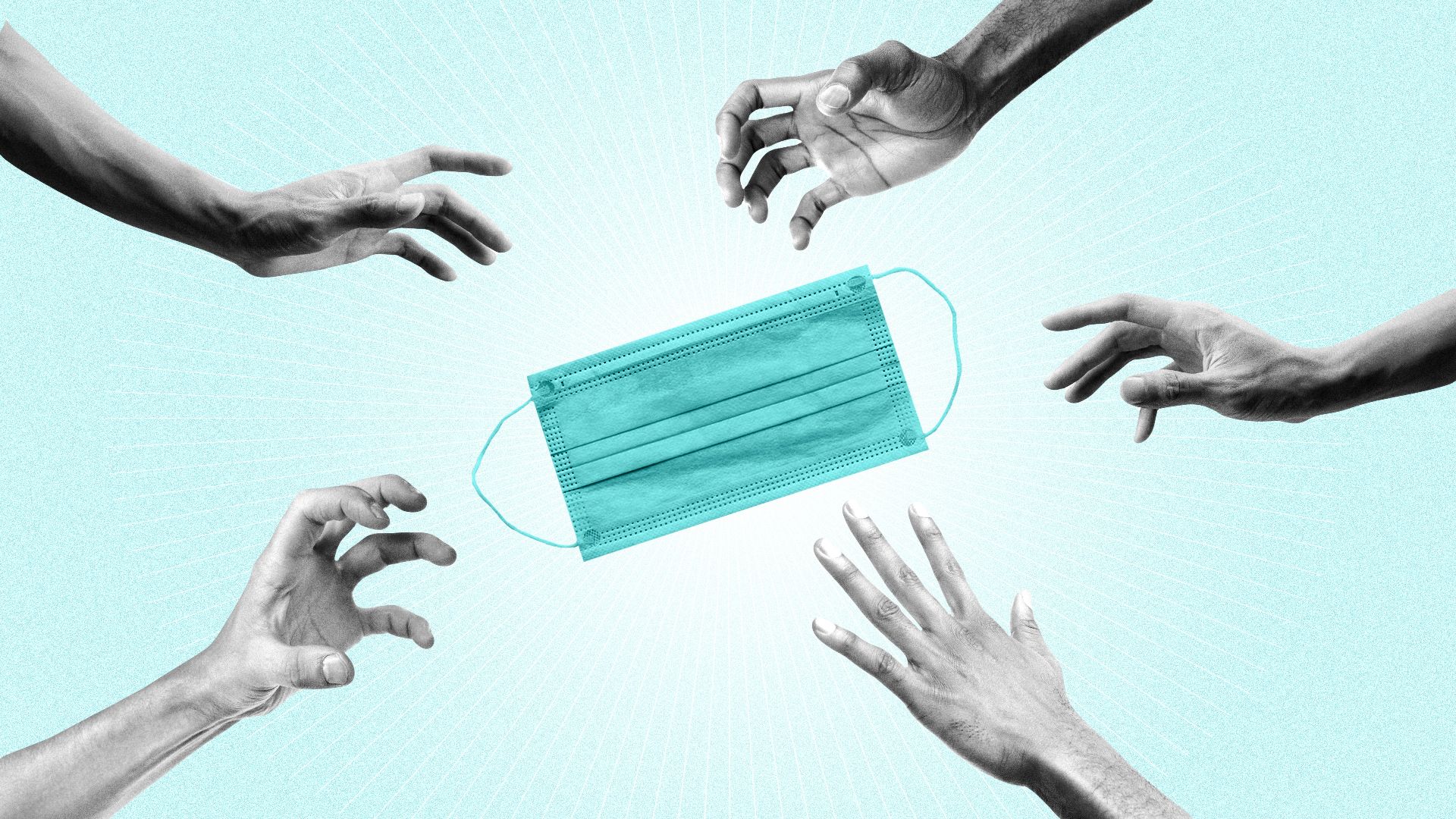America's medical mask crisis
Add Axios as your preferred source to
see more of our stories on Google.

Illustration: Aïda Amer/Axios
Hospitals around the country are running out of medical masks and other protective gear, and health care workers are taking desperate steps to protect themselves from exposure to the novel coronavirus.
Why it matters: Keeping doctors, nurses and other providers healthy and able to work is central to America's ability to manage the crush of patients expected to flood hospitals in coming days.
- "If you can’t protect your health care workforce, you’re not going to have a health care workforce, and you’re not going to have a health care system," Harvard's Ashish Jha told me.
What's new: We've been sounding the alarm about medical masks for awhile, but this disaster scenario is becoming reality in some places, especially New York and Washington.
- Hospitals are considering shutting their doors, doctors are seeing patients while wearing dangerously inadequate protective gear, and volunteers are cobbling together makeshift face shields, the New York Times reports.
- The Centers for Disease Control and Prevention has posted strategies for what to do without masks, including using bandanas and scarves — which have unknown utility.
What we're watching: President Trump has invoked the Defense Protection Act, which gives the federal government extraordinary manufacturing powers, but has yet to use it.
- "We need the president to marshal the DPA, the Defense Production Act, to get all of these materials produced on a war-time footing quickly, dramatically, and in large number," Senate Minority Leader Chuck Schumer said yesterday.
- Trump struck a different tone. "We have helped out, and there are right now millions of masks being made. But this is really for the local governments, governors, and people within the state, depending on the way they divided it up," he said yesterday.
The bottom line: We're only at the beginning of our fight against the coronavirus, and our most important line of defense — health care workers — increasingly don't have the tools they need. That's not good.
